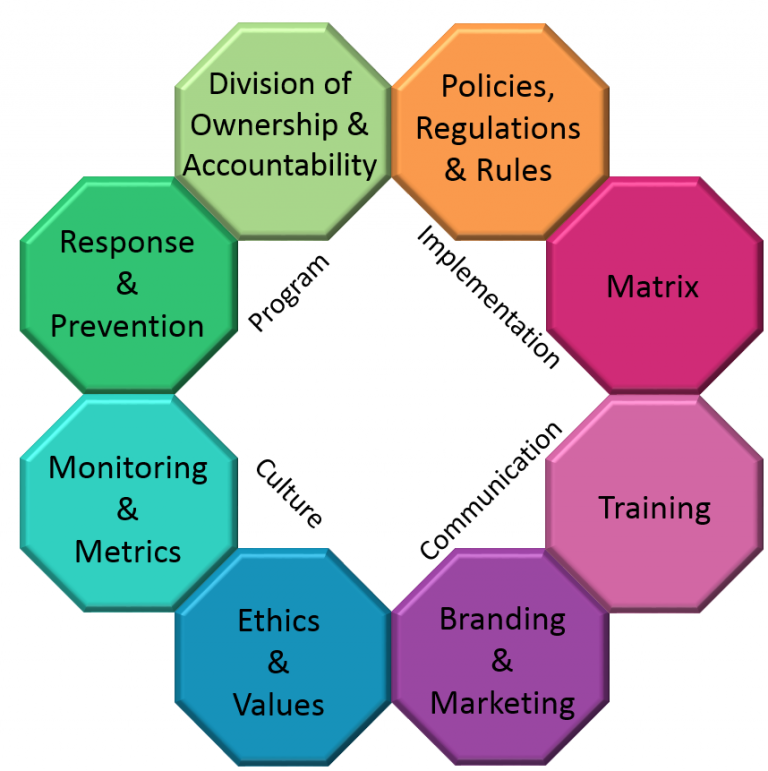Program Attributes & Activities
Elements of NC State’s Compliance and Integrity Program
Consistent with the Mission, Vision and Values of NC State, the university recognizes the following principles as important elements for an effective compliance and integrity program:
- A governance structure that supports leadership oversight of the Compliance and Integrity Program.
- A top-down division of ownership and accountability among university personnel with compliance roles and responsibilities;
- Rapid response and prevention protocols, including prompt investigations and appropriate corrective actions to prevent similar offenses when detected;
- Maintaining open lines of communication, including an anonymous reporting mechanism for employees to report in good faith possible compliance issues without fear of retaliation;
- Internal monitoring and decentralized oversight of university risks that utilizes metrics and centralized data collection;
- Incorporation of the University’s core values into the culture of ethics and integrity at NC State;
- Periodic review and evaluation of policies, regulations and rules impacting university compliance functions;
- Established foundational dataset and responsibility matrix that identifies and publishes, both internally and externally, compliance subject matter areas and compliance owners;
- Effective training and education on compliance subject matter and university-wide ethical standards; and
- A robust branding initiative.
Further information about the NC State Compliance and Integrity Program’s attributes and activities can be found in NC State Compliance and Integrity Program Plan.

Division of Ownership and Accountability
- Defined compliance roles and responsibilities
- Ownership by leadership
- Three-tiered compliance ownership
- Begin with leadership and cascade to campus community
Policies, Regulations, and Rules
- Continual development of PRRs, SOPs, and best practices
- Annual reviews to maintain current and useful information
- Refinement of internal guidelines and standards
Matrix
- Foundational dataset
- Interactive web-based responsibility matrix
- Identification of gaps in compliance objectives
- Identification of compliance subject-matter-areas and corresponding division/unit ownership
Training
- Web-based training tools
- Rich content development
- Holistic and comprehensive multi-media presence
- Mandatory and voluntary training opportunities
Branding and Marketing
- Communication strategies
- Robust website development
- Chancellor’s and leadership’s messaging to the campus community
- Promotional mediums
- Institutional branding
Ethics and Values
- Incorporation of institutional values
- Commitment to an ethical culture and integration into strategic planning
- Attainment of institutional compliance and integrity identity
Monitoring and Metrics
- Whistleblower and anonymous reporting
- Action/response plans
- Periodic review of compliance objectives
- Performance evaluation criteria
- Identify and track high risk areas
Response and Prevention
- After-action review
- Identify opportunities for continual improvement
- Rapid-response protocols
- Thorough communication protocols